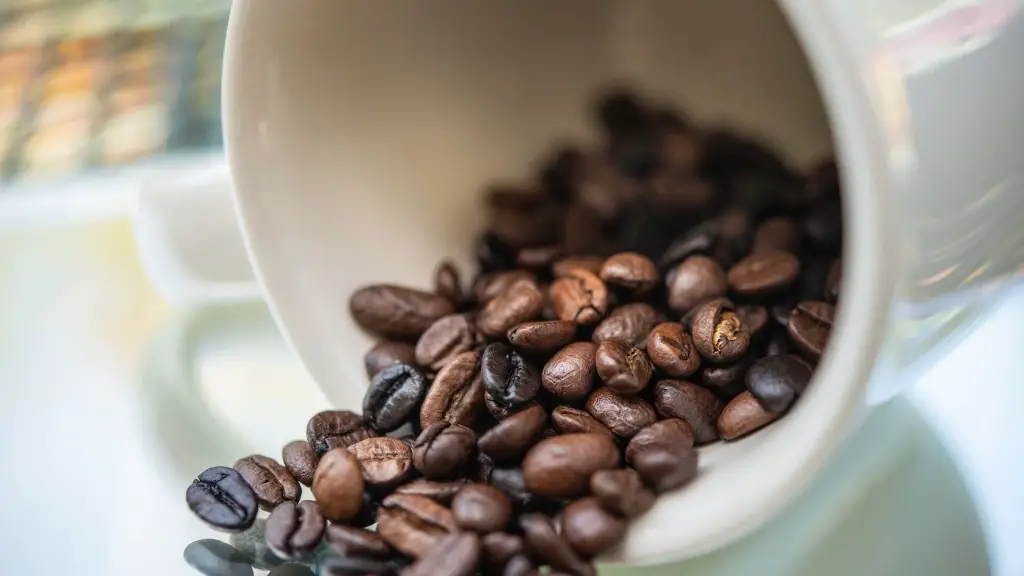Most individuals can not imagine a morning without a cup of coffee. According to a study published in the Harvard Health Publishing, more than 75 percent of Americans regularly consume caffeine and 88 percent of them making it a ritual to have coffee in the morning. Coffee lovers have lots of reasons to love their daily cup; it provides a pleasant flavor and an energetic feeling. However, the question remains – Is it really worth having a cup of coffee every morning?
In terms of nutrition and health, there can be different opinions. According to the American Academy of Nutrition and Dietetics, small amounts of coffee or caffeine provide advantages in small amounts. It can temporarily boost attention, reaction times, memory, and overall cognitive skills. Studies also show that ingested caffeine can help with decreasing depression and general fatigue. In addition, moderate caffeine intake has been associated with a reduced risk of type 2 diabetes, stroke, Parkinson’s disease, and cardiovascular disease. Furthermore, coffee intake has shown some promise in reducing liver and colorectal cancer.
Despite the health benefits, health professionals have warned against exceeding the 400mg of caffeine a day. Too much caffeine can cause heart palpitations, insomnia, dehydration and restlessness. High doses of caffeine can also disrupt normal sleep patterns and can cause anxiety. Also, for those with certain conditions such as high blood pressure, caffeine could potentially increase the risk of cardiovascular diseases. Alternatively, some people are more sensitive to caffeine than others, and might develop unpleasant side effects from drinking coffee.
Ultimately, each individual must decide for themselves whether coffee is a beneficial part of their morning routine. It is best to consult a healthcare professional if you want personalized advice.
Jitters
For individuals who are not regular coffee drinkers, an occasional cup can be energizing. However, there can be negative side effects associated with drinking coffee. The most common of these is ‘coffee jitters’.Coffee jitters refer to the feeling of intense restlessness and fear that some people experience after drinking coffee. The jitters are caused by the high levels of caffeine in the coffee entering their bloodstream and stimulating the nervous system. It can cause a person to feel ‘shaky’ and unable to focus as their mind races uncontrollably.
Some common symptoms associated with coffee jitters include intense anxiety, nausea, accelerated heart rate, sweating, difficulty sleeping, and difficulty concentrating. It is important to note that the effects of coffee jitters can differ for each individual. Some individuals may have more severe reactions than others.
If you experience coffee jitters, it is important to remember that the feeling usually subsides after a short period of time. To minimize the occurrence of coffee jitters, it is best to limit coffee intake and be mindful of how your body reacts to the caffeine.
If coffee jitters become a regular problem, it is recommended that you speak with your doctor or nutritionist. They can help you determine how much caffeine is right for you, and how best to avoid negative side effects.
Price
For many individuals, the price of their daily cup of coffee adds up over time. Coffee prices vary widely, depending on where and how you’re purchasing your coffee. It’s also important to consider the different brewing methods. Brewing coffee at home offers an inexpensive option to enjoy a cup of coffee.
Some individuals opt for single-serve coffee machines, either for convenience or to reduce the waste associated with making a full pot of coffee. However, these machines are rather expensive to purchase, and the pods cost more than ground coffee. Additionally, consider the cost of milk and sugar, as well as the energy consumed for the brewing and preparation time.
Additionally, specialty coffee drinks can be expensive. A latte or cappuccino from a coffee shop will cost significantly more than a drip brew of the same beans. If you’re consistently purchasing specialty coffee drinks and you’re looking to save money, it’s better to invest in a quality home-brewing setup.
To save money, you should also consider learning how to roast your own coffee beans. You can purchase green coffee beans online and roast them yourself, allowing you to make your own custom blend. Doing this can significantly lessen the cost of your daily cup.
Alternatives
If you’re looking for an alternative to coffee, there are many options available. Tea can provide many of the same benefits as coffee, but with less of a caffeine content. There are a variety of types of tea available, ranging from green to herbal, so you can find one to suit your taste. Yerba mate is a tea that has gained in popularity due to its unique taste, while still providing many of the same health benefits as coffee.
Another alternative to coffee is cold brew. Cold brew is a method of brewing coffee where you steep the beans in cold or room temperature water for an extended period of time. This creates a less acidic and less bitter flavor than regular coffee. Cold brew has become very popular due to its smooth taste and availability from most coffee shops.
Finally, there are some ‘coffee-replacement’ beverages on the market. Many of these are plant-based drinks that are designed to provide the same pick-me-up as coffee, but without the same caffeine content. These can be found in health food stores and some grocery stores. However, it is important to read the ingredients as some of these products may have added sugar or preservatives.
Go Undeterred
Although you can find a plethora of opinions regarding the pros and cons of drinking coffee, caffeine and each person’s individual tolerance, it is ultimately up to you and your body to decide the best practice for you personally. There is no one-size-fits-all answer to whether you should drink coffee every morning. You might decide that it is something to enjoy on occasion, or you might find that having a cup of coffee every morning is the best way to start your day. Similarly, you can find alternatives to coffee and caffeine that are just as energizing and enjoyable.
Benefits
When consumed in moderation, coffee can have a variety of benefits. It can lead to improved cognitive performance, a reduced risk of certain diseases, improved energy levels, and improved mood. Additionally, coffee offers more than just physical benefits; for many, a cup of coffee is an enjoyable start to their day. The warm beverage and pleasant aroma make it an enjoyable experience that helps set the tone for the rest of the day.
A strong coffee habit has many social benefits. For many, coffee is a staple of their social lives. It can be the topic of conversations, a way to catch up with old friends, or a way to make new ones. A cup of coffee has the power to transform a solo moment into a shared experience.
When considering the quality of the coffee, always opt for fair trade, organic and sustainable coffee. This creates beneficial relationships among coffee farmers, and protects the environment from any harmful farming practices.
Risk
Although coffee can have great benefits, it is important to be aware of any potential risks that come with its consumption. Too much coffee can lead to negative side effects such as coffee jitters, insomnia, anxiety or an irregular heartbeat. To reduce the potential risks, it is necessary to be mindful of the amount of coffee being consumed each day.
It is best to opt for coffee that is organic and fair trade whenever possible. This helps to reduce the potential risks associated with consuming the chemicals and pesticides used in regular commercial coffee production. Additionally, opt for beans roasted with lower temperatures and less time to reduce the formation of compounds such as acrylamides, which have been associated with an increased risk of cancer.
Most people enjoy a cup of coffee every morning and feel no adverse effects. However, it is important to be aware of the potential risks and make sure to stay within healthy consumption limits.





